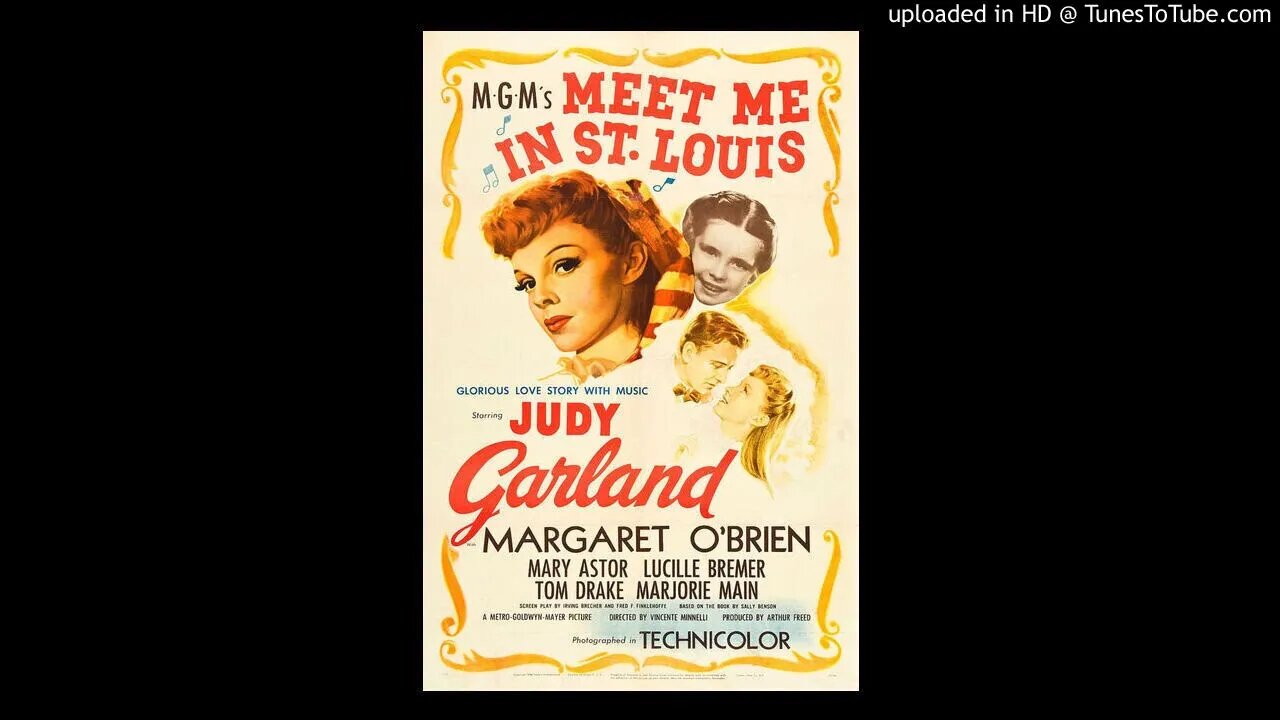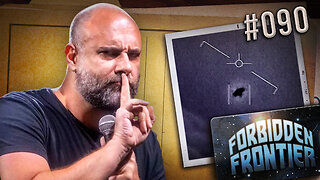Premium Only Content

Meet Me In St. Louis - Judy Garland - Margaret O'Brien - Lux Radio Theater
All-Star Radio Dramas of Classic Films
Meet Me in St. Louis is a 1944 American Technicolor musical film made by Metro-Goldwyn-Mayer. Divided into a series of seasonal vignettes, starting with Summer 1903, it relates the story of a year in the life of the Smith family in St. Louis, leading up to the opening of the Louisiana Purchase Exposition (more commonly referred to as the World's Fair) in the spring of 1904. The picture stars Judy Garland, Margaret O'Brien, Mary Astor, Lucille Bremer, Tom Drake, Leon Ames, Marjorie Main, June Lockhart, and Joan Carroll.
Lux Radio Theatre, sometimes spelled Lux Radio Theater, a classic radio anthology series, was broadcast on the NBC Blue Network (1934–35) (owned by the National Broadcasting Company, later predecessor of American Broadcasting Company [ABC] in 1943–1945); CBS Radio network (Columbia Broadcasting System) (1935–54), and NBC Radio (1954–55). Initially, the series adapted Broadway plays during its first two seasons before it began adapting films. These hour-long radio programs were performed live before studio audiences. The series became the most popular dramatic anthology series on radio, broadcast for more than 20 years and continued on television as the Lux Video Theatre through most of the 1950s. The primary sponsor of the show was Unilever through its Lux Soap brand.
Broadcasting from New York, the series premiered at 2:30 p.m., October 14, 1934, on the NBC Blue Network with a production of Seventh Heaven starring Miriam Hopkins and John Boles in a full-hour adaptation of the 1922–24 Broadway production by Austin Strong. The host was the show's fictional producer, Douglass Garrick (portrayed by John Anthony). Doris Dagmar played another fictional character, Peggy Winthrop, who delivered the Lux commercials. Each show featured a scripted session with Garrick talking to the lead actors. Anthony appeared as Garrick from the premiere 1934 episode until June 30, 1935. Garrick was portrayed by Albert Hayes from July 29, 1935, to May 25, 1936, when the show moved to the West Coast.
Famed studio executive and film producer / director Cecil B. DeMille, (1881-1959), took over as the host on June 1, 1936, continuing until January 22, 1945. That initial episode with DeMille featured stars Marlene Dietrich and Clark Gable in The Legionnaire and the Lady. On several occasions, usually when he was out of town, he was temporarily replaced by various celebrities, including Leslie Howard and Edward Arnold.
Lux Radio Theatre strove to feature as many of the original stars of the original stage and film productions as possible, usually paying them $5,000 an appearance. In 1936, when sponsor manufacturer Lever Brothers (who made Lux brand soap and detergent) moved the show from New York City to Hollywood, the program began to emphasize adaptations of films rather than plays. The first Lux film adaptation was The Legionnaire and the Lady, with Marlene Dietrich and Clark Gable, based on the film Morocco. That was followed by a Lux adaptation of The Thin Man, featuring the movie's actual stars, Myrna Loy and William Powell.
The film was adapted by Irving Brecher and Fred F. Finklehoffe from a series of short stories by Sally Benson, originally published in The New Yorker magazine under the title "5135 Kensington", and later in novel form as Meet Me in St. Louis. The film was directed by Vincente Minnelli, who met Garland on the set and later married her. It was the second-highest grossing picture of the year, only behind Going My Way.[6] In 1994, the film was deemed "culturally significant" by the Library of Congress and selected for preservation in the United States National Film Registry.
Garland debuted the standards "The Trolley Song", "The Boy Next Door", and "Have Yourself a Merry Little Christmas", all of which became hits after the film was released. Arthur Freed, the producer of the film, also wrote and performed one of the songs.
-
 18:12:15
18:12:15
Chesterton Radio
1 year ago $4.00 earnedElfland Radio - Mystery Drama Adventure All-Day Live Stream
45.8K5 -
 1:20:04
1:20:04
Tim Pool
4 days agoGame of Money
65.3K10 -
 2:21:11
2:21:11
Nerdrotic
12 hours ago $28.05 earnedDown the Rabbit Hole with Kurt Metzger | Forbidden Frontier #090
113K21 -
 2:41:13
2:41:13
vivafrei
17 hours agoEp. 251: Bogus Social Security Payments? DOGE Lawsduit W's! Maddow Defamation! & MORE! Viva & Barnes
240K268 -
 1:19:23
1:19:23
Josh Pate's College Football Show
10 hours ago $4.30 earnedBig Ten Program Rankings | What Is College Football? | Clemson Rage| Stadiums I Haven’t Experienced
63.2K1 -
 LIVE
LIVE
Vigilant News Network
15 hours agoBombshell Study Reveals Where the COVID Vaccine Deaths Are Hiding | Media Blackout
2,016 watching -
 1:17:59
1:17:59
Sarah Westall
11 hours agoDOGE: Crime & Hysteria bringing the Critics & the Fearful - Plus new CDC/Ukraine Crime w/ Dr Fleming
65K5 -
 45:39
45:39
Survive History
17 hours ago $9.79 earnedCould You Survive in the Shield Wall at the Battle of Hastings?
69.8K6 -
 1:50:28
1:50:28
TheDozenPodcast
16 hours agoViolence, Abuse, Jail, Reform: Michael Maisey
105K4 -
 23:01
23:01
Mrgunsngear
1 day ago $6.25 earnedWolfpack Armory AW15 MK5 AR-15 Review 🇺🇸
90.3K12